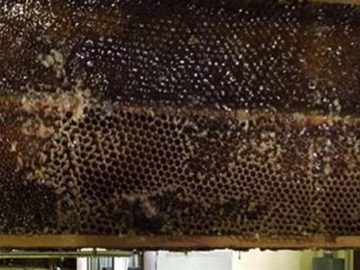“There is strong evidence that … processed meats are causes of bowel cancer, and that there is no amount of processed meat that can be confidently shown not to increase risk … Try to avoid processed meats such as bacon, ham, salami, corned beef and some sausages.”
Meat industry reacted rapidly and they promptly accused the report of being incorrect and a tool of the “anti-meat” lobby. Professor Martin Wiseman, project director of the report, replied:
“These insinuations are nothing short of outrageous … WCRF commissioned the report with money raised from the general public and therefore it was not influenced by any vested interests.
The fact is that our report is the most comprehensive and authoritative review of the evidence that has ever been published and it found convincing evidence that … processed meat … increase[s] risk of bowel cancer.”
For optimal health, you really want to limit the amount of all processed foods you eat as much as possible. But among processed foods, processed meats may get the prize for biggest health risk.
Most people believe exactly what they want to believe, and that includes the truth about the food that they are thrusting into their faces.
This guy for example, has been a butcher for 30 years and admits that whenever he sees cancer in the pork he does not throw it. He just cuts it out still sells the meat to his customers. What the heck!?
Unfortunately, in the United States today we can’t even rely on the big food corporations to label their products accurately. Just check out what a different new study recently discovered.
Some hot dogs were labeled as pork meat only, but were found to contain traces of horse meat after all. Others listed only one type of meat but included several or didn’t contain all the ingredients listed.
Even grosser: 2 percent of all samples were found to have traces of human DNA in them. Veggie dogs were the worst off, accounting for 67 percent of the hygiene issues and two-thirds of the human DNA found.
The good news: As bad as some brands were found to be, there are some trustworthy options out there. The report lists the soy chorizo and meatless corn dogs at Trader Joe’s as safe picks for vegetarians, and Taveritte’s, Whole Foods’ 365 brand, Aidell’s, Hebrew National, Ball Park, Oscar Mayer, and Johnsonville for meat eaters.
The World Health Organization has classified processed meats – including ham, salami, bacon and frankfurts – as a Group 1 carcinogen which means that there is strong evidence that processed meats cause cancer. Red meat, such as beef, lamb and pork has been classified as a ‘probable’ cause of cancer.
A stunning new report from the World Health Organization has concluded that there is clear scientific evidence that eating processed meat causes cancer. In particular, the WHO specifically mentioned processed pork products such as bacon, sausages and hot dogs. It refers to meat that has been treated in some way to preserve or flavor it. Processes include salting, curing, fermenting, and smoking. Red meat includes beef, pork, lamb, and goat.
Of course for those of us that have been investigating these things for a long time, this doesn’t exactly come as a shock. The alternative health community has been talking about the evidence that pork causes cancer for decades. But for the WHO to come out and say these things publicly is a really big deal.
The International Agency for Research on Cancer (IARC) has classified processed meat as a carcinogen, something that causes cancer. And it has classified red meat as a probable carcinogen, something that probably causes cancer. IARC is the cancer agency of the World Health Organization.
Twenty-two experts from 10 countries reviewed more than 800 studies to reach their conclusions. They found that eating 50 grams of processed meat every day increased the risk of colorectal cancer by 18%. That’s the equivalent of about 4 strips of bacon or 1 hot dog. For red meat, there was evidence of increased risk of colorectal, pancreatic, and prostate cancer.
News of this new report made headlines all over the globe on Monday.
Eating hot dogs, ham and other processed meat can cause colorectal cancer, and eating red meat “probably” can cause cancer, the World Health Organization’s cancer agency reported Monday.
Other studies have also found that processed meats increase your risk of:
- Colon cancer by 50 %
- Bladder cancer by 59 %
- Stomach cancer by 38 %
- Pancreatic cancer by 67 %
Kurt Straif of the International Agency for Cancer Research said the risk of developing colorectal cancer from eating processed meat remains small but rises with the amount consumed. Consuming red meat was linked to colorectal, pancreatic and prostate cancer, but the link was not as strong, the IARC report said.
“In view of the large number of people who consume processed meat, the global impact on cancer incidence is of public health importance,” Straif said.
And the numbers that the WHO is talking about are quite striking. For instance, the WHO says that adding just one hot dog to your diet per day significantly increases your risk of colorectal cancer…
Colleen Doyle, MS, RD, American Cancer Society managing director of nutrition and physical activity, says, “We should be limiting red and processed meat to help reduce colon cancer risk, and possibly, the risk of other cancers. The occasional hot dog or hamburger is okay.”
How to Make Healthier Meat Choices
The evidence is pretty cut-and-dry: processed meats will raise your cancer risk. What doctors suggest is to keep these foods to a very minimum in your diet, if you choose to eat them at all.
If you eat bacon, sausage, ham or so forth once in awhile, here are some tips to make them somewhat less harmful:
- Choose organic meats that are grass-fed or free-range
- Look for “uncured” varieties that contain NO nitrates
- Choose varieties that say 100% beef, 100% chicken, etc. This is the only way to know that the meat is from a single species and does not include byproducts (like chicken skin or chicken fat)
- Avoid any meat that contains MSG, high-fructose corn syrup, preservatives, artificial flavor or artificial color
- Ideally, purchase sausages and other processed meats from a small, local farmer who you can ask about the ingredients
Again, these are still not ideal and the best choice as they are still processed, but they are better than the vast majority of processed meats on the market.
Now, if you want to eat meat in a truly healthful way, follow these “rules” for healthful meat consumption:
- The meat should be organic and grass-fed
- It should ideally come from a local farmer (try finding a farmer’s market or community-supported agriculture program in your area to do this) who can verify that the products are raised on pasture, without antibiotics and pesticides
- The animals should be allowed to live in their natural habitats, eating their natural diets
- The farmer should be aware of the relationships between animals, plants, insects, soil, water and habitat — and how to use these relationships to create synergistic, self-supporting ecosystems
- Taking it a step further, add homemade spice rubs, herb-enhanced marinades or even fresh blueberries to your meat prior to cooking it. This will impart some health benefits and also cut down on the harmful substances formed.
- Even better, use the same spice rubs and marinades, but eat the meat only lightly cooked or raw. Many of the negative health associations of eating meat are related to the fact that the meat is cooked, which creates harmful substances.
You can easily avoid all these problems by eating your meat uncooked. The problem with doing that in our current culture is that most meat is raised under factory farming conditions where the animals are very unhealthy and likely to harbor infections that can harm you.
However, if you can find humanely raised organic meat, then that risk is virtually eliminated.
Again, in order for meat to be its healthiest, it should be organic and grass-fed, and it should be eaten raw or cooked as little as possible. And, it should be a whole cut of meat, such as a roast, chop or steak, as opposed to a processed variety like a hot dog or bacon.




































Connect with us